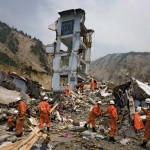 Natural disasters don’t tend to discriminate over who they affect, but it nonetheless goes without saying that certain communities are more vulnerable than others. A recent project by the University of Waterloo saw the creation of an algorithm to not only identify such vulnerable communities, but to then help first responders locate them during emergencies.
Natural disasters don’t tend to discriminate over who they affect, but it nonetheless goes without saying that certain communities are more vulnerable than others. A recent project by the University of Waterloo saw the creation of an algorithm to not only identify such vulnerable communities, but to then help first responders locate them during emergencies.
The work was completed after the World Health Organization revealed that older adults living at home were disproportionately at risk of fatality during natural disasters. For instance, during Hurricane Katrina, 71% of deaths were among people over 60 years of age.
“Frailty combined with social isolation can mean that older adults still living at home have nowhere to turn during emergencies,” the authors say. “With a growing proportion of elderly persons choosing to reside in their own homes, it’s a very real concern. Home care services need to have mechanisms in place to manage the needs of their most vulnerable clients during disasters.”
Spotting the vulnerable
The algorithm picks up data from interRAI, a global network of research that aims to improve the quality of life and care given to vulnerable populations. The network has information on home care assessments in numerous regions, together with data on vulnerable populations in those regions.
“Older adults living on their own are more difficult to locate and assist than those living in healthcare facilities,” the researchers say. “This algorithm helps us to plan for disasters in advance and allows responders to quickly generate an accurate list of those who may need help during a disaster.”
The team hope to deploy the algorithm in a live situation in Canada some time during the first half of 2018. They believe it has strong potential to save lives and should be utilized by any nation that suffers from natural disasters, especially as most of the world is ageing, and therefore experiencing growth in the at risk population.